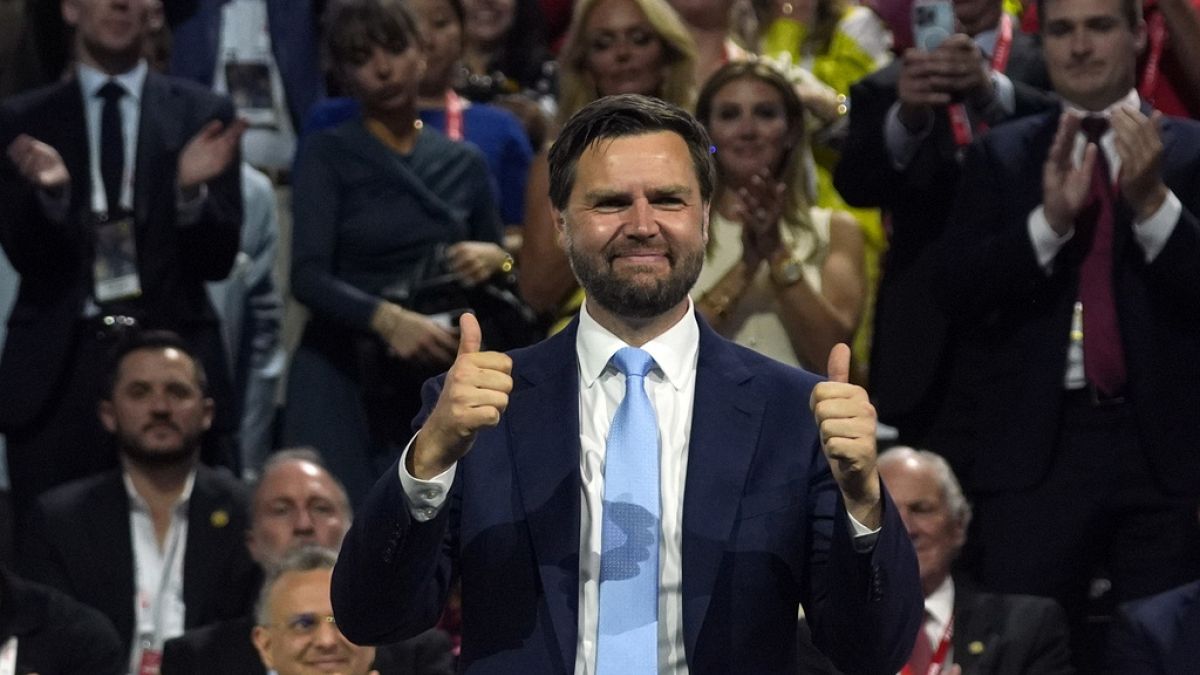JD Vance, a relatively unknown figure in the political arena, has recently been in the spotlight due to his selection as Donald Trump’s running mate in the upcoming presidential elections. Despite his limited experience as a senator, Vance has made a name for himself with his extreme conservative views, particularly on foreign policy and abortion. Born and raised in Ohio, Vance served in Iraq, earned degrees from Ohio State University and Yale Law School, and worked as a venture capitalist in Silicon Valley. His bestseller book “Hillbilly Elegy” introduced him to the Trump family and led to a close friendship with Donald Trump Jr. Vance, who was once a harsh critic of Trump, has since become a staunch ally, defending the former president’s policies and behaviour in Congress.
As a leading voice for conservative movements, Vance’s shift from a “never Trump” critic to an ally has raised concerns among Democrats who label him as an extremist. Despite his provocative positions, Vance has shown flexibility in amending his stances, as seen with his abortion ban support which he later softened after Ohio voters’ decision. Known for articulating Trump’s vision and America First worldview, Vance’s selection as a running mate is seen as a strategic move by the former president to sway key swing states like Michigan and Wisconsin that align with Ohio’s values and demographics. With his debating skills and ability to communicate Trump’s agenda, Vance is expected to play a crucial role in the Republican campaign.
Vance’s selection as Trump’s running mate has sparked anxiety in Europe over the potential implications on US foreign policy. Being one of the most isolationist members of the Republican Party, Vance’s views on prioritizing American interests over other nations have alarmed European leaders. His opposition to aid bills for Ukraine and criticism of Europe’s reliance on US military support have further strained transatlantic relations. At the Munich Security Conference, Vance raised concerns about the US’s manufacturing capacity to sustain a prolonged ground war in Eastern Europe, emphasizing the need for clearer communication on the goals and costs of such interventions. His strong stance against NATO and Europe’s defense spending indicates a potential shift in US-Europe relations if Trump is reelected to the presidency.
In light of Vance’s isolationist views and skepticism towards international aid, his selection as Trump’s running mate could have far-reaching consequences for European nations reliant on US support. His past criticisms of NATO, Europe’s defense spending, and calls for limited involvement in Eastern European conflicts raise concerns among EU leaders seeking to strengthen ties with the US. With Trump’s protectionist trade policies and focus on supporting American industry, Vance is likely to align with these initiatives if elected vice president. The EU’s efforts to repair strained trade relationships with the US may face obstacles if Vance’s anti-globalist stance influences US foreign policy decisions under a potential Trump administration.
In conclusion, JD Vance’s rapid rise from political obscurity to becoming a potential vice presidential nominee underscores the shifting dynamics within the Republican Party and US foreign policy. His alignment with Trump’s America First agenda and isolationist views have triggered both support and apprehension within the political landscape. As the campaign unfolds, Vance’s role as a key advocate for Trump’s policies and the impact of his selection on transatlantic relations remain subjects of debate and speculation. With the upcoming elections poised to shape the direction of US foreign policy and global alliances, Vance’s candidacy as vice president could have significant implications for the future of US-European relations and international cooperation.










